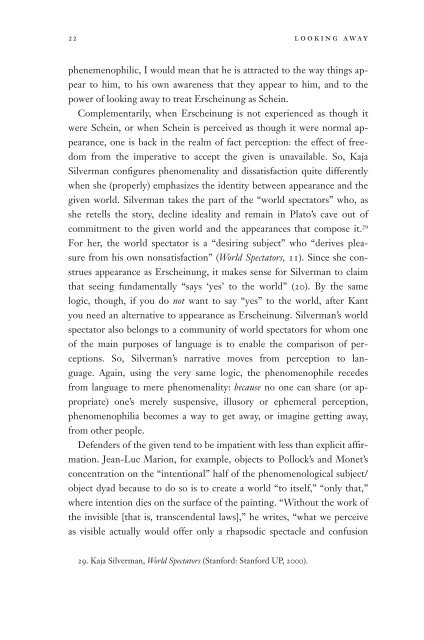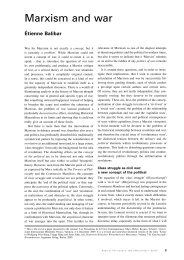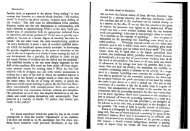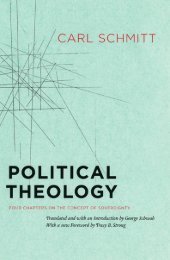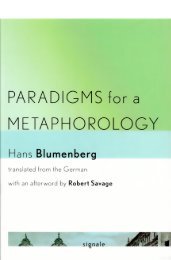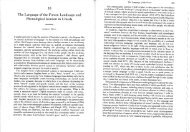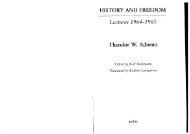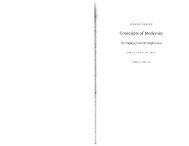Terada - Looking Away (Selections).pdf - Townsend Humanities Lab
Terada - Looking Away (Selections).pdf - Townsend Humanities Lab
Terada - Looking Away (Selections).pdf - Townsend Humanities Lab
You also want an ePaper? Increase the reach of your titles
YUMPU automatically turns print PDFs into web optimized ePapers that Google loves.
22 looking away<br />
phenemenophilic, I would mean that he is attracted to the way things appear<br />
to him, to his own awareness that they appear to him, and to the<br />
power of looking away to treat Erscheinung as Schein.<br />
Complementarily, when Erscheinung is not experienced as though it<br />
were Schein, or when Schein is perceived as though it were normal appearance,<br />
one is back in the realm of fact perception: the effect of freedom<br />
from the imperative to accept the given is unavailable. So, Kaja<br />
Silverman configures phenomenality and dissatisfaction quite differently<br />
when she (properly) emphasizes the identity between appearance and the<br />
given world. Silverman takes the part of the “world spectators” who, as<br />
she retells the story, decline ideality and remain in Plato’s cave out of<br />
commitment to the given world and the appearances that compose it. 29<br />
For her, the world spectator is a “desiring subject” who “derives pleasure<br />
from his own nonsatisfaction” (World Spectators, 11). Since she construes<br />
appearance as Erscheinung, it makes sense for Silverman to claim<br />
that seeing fundamentally “says ‘yes’ to the world” (20). By the same<br />
logic, though, if you do not want to say “yes” to the world, after Kant<br />
you need an alternative to appearance as Erscheinung. Silverman’s world<br />
spectator also belongs to a community of world spectators for whom one<br />
of the main purposes of language is to enable the comparison of perceptions.<br />
So, Silverman’s narrative moves from perception to language.<br />
Again, using the very same logic, the phenomenophile recedes<br />
from language to mere phenomenality: because no one can share (or appropriate)<br />
one’s merely suspensive, illusory or ephemeral perception,<br />
phenomenophilia becomes a way to get away, or imagine getting away,<br />
from other people.<br />
Defenders of the given tend to be impatient with less than explicit affirmation.<br />
Jean-Luc Marion, for example, objects to Pollock’s and Monet’s<br />
concentration on the “intentional” half of the phenomenological subject/<br />
object dyad because to do so is to create a world “to itself,” “only that,”<br />
where intention dies on the surface of the painting. “Without the work of<br />
the invisible [that is, transcendental laws],” he writes, “what we perceive<br />
as visible actually would offer only a rhapsodic spectacle and confusion<br />
29. Kaja Silverman, World Spectators (Stanford: Stanford UP, 2000).


